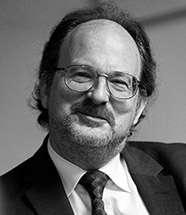Professor Paul Webley answers your criticisms about the ULU shutdown
SOAS Director Professor Paul Webley, chair of the review board which recommended shutting down ULU, has fond memories of the Union from his student days: “when I was an LSE student, LSE was very much a school of the University. I came to Senate House library, I went to ULU and all the rest because we were all University of London students.”
Since then the university has expanded greatly and the colleges, some the size of a large university, have their own unions. “That sense of the University of London-ness has, for students, largely disappeared,” said Prof. Paul Webley.
To justify the drastic recommendation to shut ULU down, he referred to ULU’s ambition to be a campaigning organisation encompassing all of London. “We accept that [but] ULU can’t be the core of a pan-London union because of the relationship between a student union and its university.” As ULU represents less than half of London students this would privilege University of London students over others.”
On the proposed campaign group, he said, “If you get a commitment from enough unions, of relatively small sums, you would actually get a substantial annual amount of money that you could run a campaigning union from. It gets legitimacy from the decisions of those students’ unions deciding that’s what they want to use their money for.”
Webley refuted the suggestion that the review excluded students, as “five presidents of student’s unions wrote in, to do with governance issues.” On the lack of students on the review board, he claimed, “We couldn’t see which students we should have on the group: ULU people; they were people who were complained about, presidents of the student unions; they’ve also got a political position.” Instead they asked for submissions from student unions. But the real death blow was the refusal of one college to continue subsidising ULU.
Many students were angered by the loss of the democratic, student-run services centre, but according to Webley, “ULU itself has been a singularly undemocratic union in terms of its turn-out figures. It was not actually representing all its students, so I don’t see this as a big democratic loss.”
Professor Webley is confident about the board’s controversial report, “If I thought it was going to be to the detriment of our students I wouldn’t have recommended it.”
Phillipa Wilkinson




